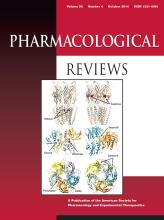Abstract
Pre-, post-, and remote conditioning of the myocardium are well described adaptive responses that markedly enhance the ability of the heart to withstand a prolonged ischemia/reperfusion insult and provide therapeutic paradigms for cardioprotection. Nevertheless, more than 25 years after the discovery of ischemic preconditioning, we still do not have established cardioprotective drugs on the market. Most experimental studies on cardioprotection are still undertaken in animal models, in which ischemia/reperfusion is imposed in the absence of cardiovascular risk factors. However, ischemic heart disease in humans is a complex disorder caused by, or associated with, cardiovascular risk factors and comorbidities, including hypertension, hyperlipidemia, diabetes, insulin resistance, heart failure, altered coronary circulation, and aging. These risk factors induce fundamental alterations in cellular signaling cascades that affect the development of ischemia/reperfusion injury per se and responses to cardioprotective interventions. Moreover, some of the medications used to treat these risk factors, including statins, nitrates, and antidiabetic drugs, may impact cardioprotection by modifying cellular signaling. The aim of this article is to review the recent evidence that cardiovascular risk factors and their medication may modify the response to cardioprotective interventions. We emphasize the critical need to take into account the presence of cardiovascular risk factors and concomitant medications when designing preclinical studies for the identification and validation of cardioprotective drug targets and clinical studies. This will hopefully maximize the success rate of developing rational approaches to effective cardioprotective therapies for the majority of patients with multiple risk factors.
Footnotes
This work was supported by grants from the British Heart Foundation [Grant FS/10/039/28270] and the RoseTrees Trust (to D.J.H.); the German Research Foundation [Grants DFG Schu 843/7-1; 843/7-2; 843/9-1] (to R.S.) and [Grants He 1320/18-1,3] (to G.H.); the National Research Fund of Hungary [Grants ANN 107803, K 109737) (to P.F.); the European Foundation for the Study of Diabetes (to P.F. and R.S.). D.H. is supported by the National Institute for Health Research University College London Hospitals Biomedical Research Centre. P.F. is a Szentágothai fellow of the National Excellence Program of Hungary [Grant TAMOP 4.2.4.A/2-11-1-2012-0001].
- Copyright © 2014 by The American Society for Pharmacology and Experimental Therapeutics
PharmRev articles become freely available 12 months after publication, and remain freely available for 5 years.Non-open access articles that fall outside this five year window are available only to institutional subscribers and current ASPET members, or through the article purchase feature at the bottom of the page.
|






